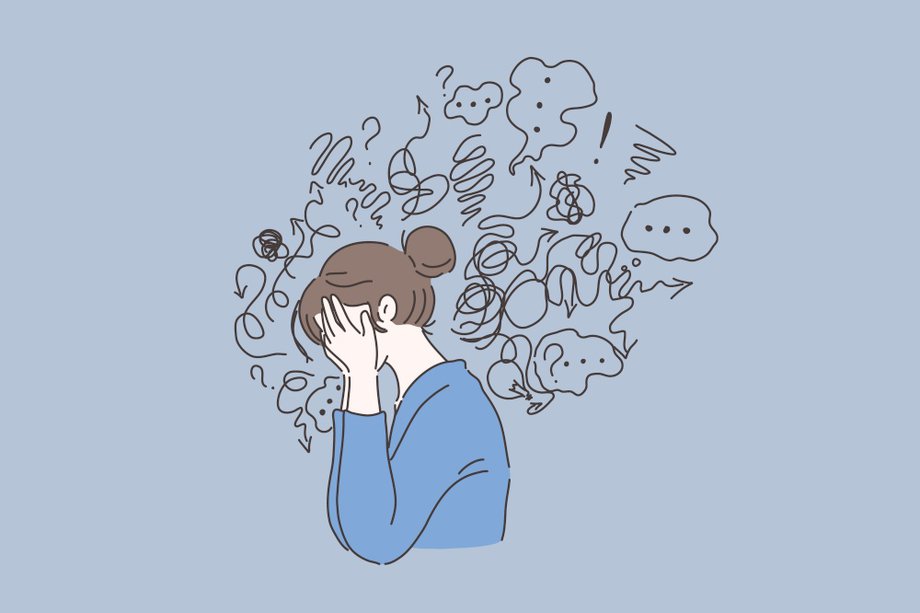How to Manage Nocturnal Panic Attacks for Better Sleep

Nocturnal panic attacks are a common sleep disturbance that can significantly impact an individual’s quality of sleep. This article aims to provide practical strategies for managing nocturnal panic attacks, with the ultimate goal of improving sleep quality.
By understanding the nature and triggers of these attacks, individuals can take proactive steps to create a relaxing bedtime routine, practice deep breathing techniques, seek professional help and support, and explore the use of medication and natural remedies.
Developing healthy sleep habits is essential for effectively managing nocturnal panic attacks and promoting better sleep.
Key Takeaways
- Nocturnal panic attacks can be triggered by genetic predisposition, alterations in brain chemistry, and heightened sensitivity to stress.
- Sleep disturbances or disruptions, stress or anxiety, certain medications or substances, and underlying anxiety or sleep disorders can trigger nocturnal panic attacks.
- Creating a relaxing bedtime routine with essential oils, a calming sleep environment, and deep breathing techniques can help manage and reduce the frequency and intensity of panic attacks.
- Seeking professional help and support, such as therapy or counseling, support groups, and cognitive-behavioral therapy, can provide individualized treatment and support for managing nocturnal panic attacks.
Understanding Nocturnal Panic Attacks
Understanding nocturnal panic attacks requires an examination of the distinct characteristics and physiological processes associated with this specific type of anxiety disorder during sleep.
Nocturnal panic attacks are sudden episodes of intense fear or discomfort that occur during sleep and can lead to significant distress and impairment in daily functioning.
The causes of nocturnal panic attacks are not fully understood, but several factors have been identified as potential triggers, including genetic predisposition, alterations in brain chemistry, and heightened sensitivity to stress.
Symptoms of nocturnal panic attacks may vary, but commonly include rapid heart rate, shortness of breath, sweating, trembling, and a sense of impending doom.
It is important to recognize and differentiate nocturnal panic attacks from other sleep-related disorders, as early identification and appropriate treatment can significantly improve the quality of life for individuals experiencing these episodes.
Identifying Triggers for Nocturnal Panic Attacks
Identifying triggers associated with episodes of panic during the night can be crucial in developing effective interventions to reduce their occurrence. Understanding these triggers can help individuals develop management strategies and coping mechanisms to alleviate the impact of nocturnal panic attacks.
Some common triggers for nocturnal panic attacks include:
- Sleep disturbances or disruptions, such as nightmares or sleep apnea
- Stress or anxiety experienced during the day, which carries over into nighttime
- Certain medications or substances, such as stimulants or caffeine, that can affect sleep quality
Managing these triggers involves implementing a combination of strategies. These may include practicing relaxation techniques before bed, creating a calming sleep environment, and establishing a consistent sleep schedule. Additionally, individuals may benefit from cognitive-behavioral therapy (CBT) or medication to address underlying anxiety or sleep disorders.
Creating a Relaxing Bedtime Routine
This discussion focuses on the use of essential oils for relaxation and creating a calming sleep environment. Essential oils have been used for centuries for their therapeutic properties, including promoting relaxation and reducing stress.
By incorporating essential oils into a bedtime routine, individuals may be able to create a more soothing and tranquil atmosphere that can enhance their sleep quality and overall well-being.
Additionally, creating a calming sleep environment through the use of essential oils and other techniques such as soft lighting and comfortable bedding can help to minimize distractions and promote a restful night’s sleep.
Essential Oils for Relaxation
Research has shown that the use of essential oils has been suggested as a potential method for inducing relaxation and improving sleep quality in individuals experiencing nocturnal panic attacks. Aromatherapy benefits and stress relief are some of the advantages of incorporating essential oils into a bedtime routine.
The calming scents of essential oils can help to reduce anxiety and promote relaxation, creating a soothing environment for sleep. Some popular essential oils used for relaxation include lavender, chamomile, and bergamot. These oils have been found to have sedative effects, helping to calm the mind and body before bedtime.
Additionally, essential oils can be used in various ways, such as through diffusers, massage oils, or added to bathwater, allowing individuals to choose the method that suits them best.
Calming Sleep Environment
Creating a calming sleep environment can contribute to improved relaxation and sleep quality. One way to achieve this is by incorporating relaxing sleep music into the sleep routine. Studies have shown that listening to calming music before bedtime can help reduce anxiety and promote a state of relaxation, making it easier to fall asleep and stay asleep throughout the night.
Additionally, it is important to eliminate electronic devices from the sleep environment. The blue light emitted by these devices can interfere with the body’s production of melatonin, a hormone that regulates sleep-wake cycles. By removing electronic devices from the bedroom, individuals can create a more conducive sleep environment and promote better sleep quality.
Overall, creating a calming sleep environment through the use of relaxing sleep music and the elimination of electronic devices can significantly enhance relaxation and sleep quality.
Practicing Deep Breathing Techniques
Implementing deep breathing techniques can be an effective strategy for individuals experiencing nocturnal panic attacks to manage their symptoms and promote better sleep. Alternative breathing exercises, such as diaphragmatic breathing and box breathing, can help regulate the body’s stress response and induce relaxation.
Diaphragmatic breathing involves inhaling deeply through the nose, allowing the abdomen to rise, and exhaling slowly through the mouth, focusing on releasing tension from the body. Box breathing, on the other hand, is a technique that involves inhaling deeply for a count of four, holding the breath for a count of four, exhaling for a count of four, and holding the breath for a count of four again.
These exercises can be combined with mindfulness meditation, which involves focusing one’s attention on the present moment without judgment. By incorporating deep breathing techniques and mindfulness meditation into their bedtime routine, individuals can potentially reduce the frequency and intensity of nocturnal panic attacks, leading to improved sleep quality.
Seeking Professional Help and Support
Seeking professional help and support can be a crucial step in managing mental health issues.
One option is to seek guidance from a therapist or counselor who can provide individualized treatment and support.
Additionally, participating in support groups can offer unique benefits such as a sense of belonging, shared experiences, and the opportunity to learn from others facing similar challenges.
Therapist or Counselor
Engaging with a trained therapist or counselor can provide individuals experiencing nocturnal panic attacks with effective strategies for managing their symptoms and improving sleep quality. Therapists and counselors specializing in anxiety disorders can offer various therapy options to address nocturnal panic attacks. These may include:
- Cognitive-Behavioral Therapy (CBT): This type of therapy helps individuals identify and challenge negative thoughts and beliefs associated with panic attacks, thus reducing anxiety levels.
- Exposure Therapy: This therapy gradually exposes individuals to the situations or triggers that cause panic attacks, helping them develop coping mechanisms and reduce fear responses.
- Relaxation Techniques: Therapists may teach individuals relaxation techniques such as deep breathing exercises or progressive muscle relaxation to help manage anxiety and promote better sleep.
Finding support through therapy can provide individuals with a safe space to explore their experiences, gain insight, and develop effective coping strategies for managing nocturnal panic attacks.
Benefits of Support Groups
Support groups can provide individuals experiencing nocturnal panic attacks with a platform to connect with others who share similar experiences, fostering a sense of understanding, validation, and community. These groups offer various benefits that can aid in the management of panic attacks and promote better sleep. By participating in support groups, individuals can gain valuable insights, coping strategies, and emotional support from others who have faced similar challenges. The table below summarizes some key benefits of support groups for individuals with nocturnal panic attacks:
| Support Group Benefits |
|---|
| 1. Emotional support and validation |
| 2. Sharing coping strategies and techniques |
| 3. Gaining insights and knowledge from others |
| 4. Establishing a sense of belonging and community |
Finding community and connecting with others who understand the struggles of nocturnal panic attacks can be empowering and reassuring. Support groups can serve as a safe space for individuals to express their concerns, fears, and triumphs, ultimately helping them navigate through the difficulties of managing panic attacks and improving their sleep quality.
Using Medication and Natural Remedies
The use of medication and natural remedies can be effective in managing nocturnal panic attacks and improving sleep quality. There are several medication alternatives and lifestyle changes that can be considered for individuals experiencing nocturnal panic attacks.
- Selective Serotonin Reuptake Inhibitors (SSRIs): These medications are commonly prescribed to treat anxiety disorders and can help in reducing panic attacks during sleep.
- Benzodiazepines: These medications work by slowing down the central nervous system and can be useful in managing acute panic attacks. However, they are generally not recommended for long-term use due to the risk of dependence.
- Herbal remedies: Natural supplements such as chamomile, lavender, and valerian root have been found to have calming effects and can promote better sleep.
In addition to medication, certain lifestyle changes can also contribute to managing nocturnal panic attacks. These include practicing good sleep hygiene, engaging in regular physical exercise, and implementing relaxation techniques such as deep breathing exercises or meditation.
It is important to consult with a healthcare professional to determine the most appropriate approach for managing nocturnal panic attacks and improving sleep quality.
Developing Healthy Sleep Habits
In addition to medication and natural remedies, developing healthy sleep habits can be an effective way to manage nocturnal panic attacks and improve sleep quality.
Mindfulness techniques, such as meditation and deep breathing exercises, can help calm the mind and reduce anxiety before bedtime. These practices promote relaxation and can alleviate symptoms of panic attacks during sleep.
Furthermore, exploring cognitive behavioral therapy (CBT) can provide individuals with tools to identify and challenge negative thought patterns that contribute to panic attacks. CBT can also help individuals develop coping strategies to manage panic symptoms, such as relaxation techniques and positive self-talk.
Frequently Asked Questions
Can Nocturnal Panic Attacks Be Completely Eliminated or Are They Something That Will Always Occur?
The prevalence of nocturnal panic attacks varies among individuals, and while medication can help manage symptoms, complete elimination may not be possible for everyone. Further research is needed to understand the factors influencing the occurrence of these attacks.
Are There Any Specific Foods or Beverages That Can Trigger Nocturnal Panic Attacks?
Foods and beverages can potentially serve as triggers for nocturnal panic attacks. However, their specific role in causing such attacks requires further investigation. Prevention strategies may involve exercise and aromatherapy, but their efficacy remains uncertain.
Can Certain Scents or Aromatherapy Techniques Help in Managing Nocturnal Panic Attacks?
Scent therapy and relaxation techniques are often considered as potential strategies for managing nocturnal panic attacks. Research suggests that certain scents and aromatherapy techniques may have a calming effect on individuals, promoting relaxation and potentially reducing anxiety symptoms.
Is It Possible to Prevent Nocturnal Panic Attacks by Avoiding Certain Activities or Situations?
Avoiding triggers and implementing lifestyle changes may be effective strategies in preventing nocturnal panic attacks. Certain activities or situations that evoke anxiety should be identified and avoided to minimize the occurrence of these attacks during sleep.
Are There Any Specific Exercises or Physical Activities That Can Help Reduce the Frequency of Nocturnal Panic Attacks?
The effectiveness of physical exercises and relaxation techniques in reducing the frequency of nocturnal panic attacks has been explored. Further research is needed to determine their specific impact on managing these attacks and promoting better sleep.









